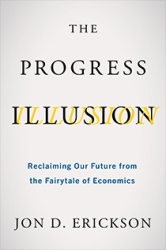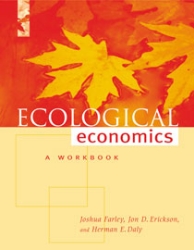
Jon D. Erickson
Jon D. Erickson is the Blittersdorf Professor of Sustainability Science and Policy at the University of Vermont, faculty member of the Rubenstein School of Environment and Natural Resources, and Fellow of the Gund Institute for Environment. His previous co-authored and edited books include Sustainable Wellbeing Futures, The Great Experiment in Conservation, Ecological Economics of Sustainable Watershed Management, Frontiers in Ecological Economic Theory and Application, and Ecological Economics: a Workbook for Problem-Based Learning. He is also Adjunct Professor at the University of Iceland, and has been a Fulbright Scholar in Tanzania, Assistant Professor of Economics at Rensselaer Polytechnic Institute, and visiting professor in the Dominican Republic, Norway, Germany, and Slovakia. Outside of the university, he is an Emmy-award winning producer and director of documentary films, co-founder and board member of numerous non-profit organizations, past-President of the US Society for Ecological Economics, and advisor to state and national policymakers. Jon lives in Ferrisburgh, Vermont with his wife Pat, their occasionally visiting sons Louis and Jon, and a menagerie of dogs, cats, horses, chickens, and donkeys.


